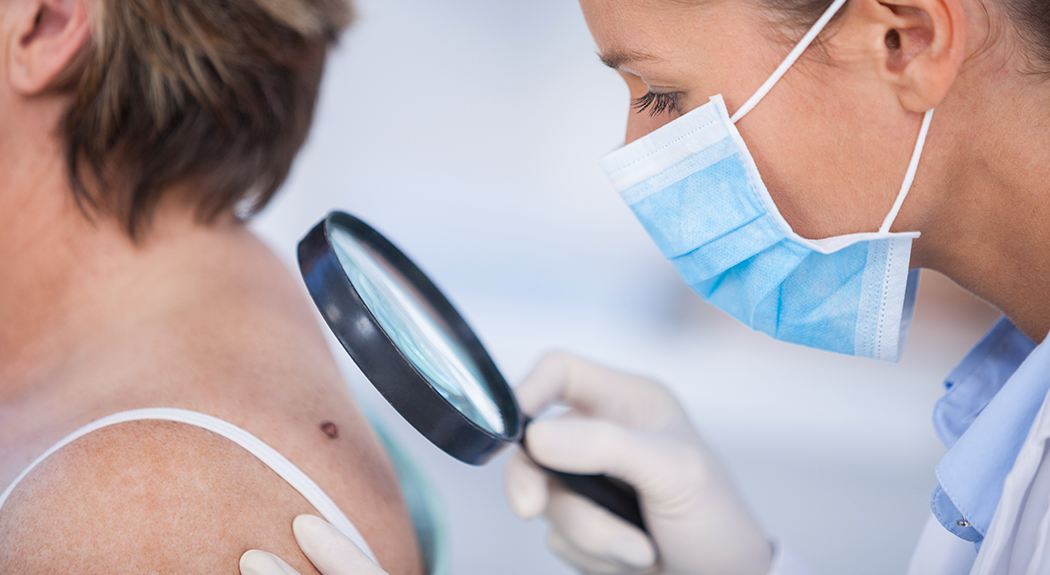Melanoma Monday: The Importance of Screenings
Millions of people are currently being treated for skin cancers in the United States. And some types — such as melanoma — are serious and can even be life-threatening. It’s a smart idea to keep an eye out for suspicious spots on your body that could be symptoms of melanoma since finding it early can give you a better chance of starting treatment before it spreads.
What is Melanoma?
Anyone can get skin cancer, and skin cancers don’t all look the same. The three most common types are:
- Basal cell carcinoma
- Melanoma
- Squamous cell carcinoma
Most basal cell and squamous cell carcinomas are highly curable, although they may be expensive to treat or leave behind scars. Melanoma, on the other hand, is more likely to spread into other parts of your body.
Screening for Suspicious Moles and Spots
The best way to help prevent skin cancer is to avoid getting too much sun exposure, including from indoor sun lamps. But it’s also worthwhile to keep a watchful eye on your skin. The most common sign of skin cancer is a change in your skin, with unusual moles or new growths often serving as an early warning sign that something is developing.
Researchers are looking into whether everyone should have a doctor regularly check over their skin to look for signs of skin cancer. At this point, regular screenings are recommended to people who previously have had skin cancer or who have suspicious moles or spots.
Some people might have a greater risk of getting skin cancer, such as those with lighter skin or who burn easily. But everyone can and should check their own skin regularly. Take the time to get to know the moles and spots on your skin that are already there. Almost all of them are harmless, but it’s important to tell your doctor if any of them change in:
- Color
- Shape
- Size
- Texture
Also show your doctor any new, unusual spots that appear, sores that don’t heal, or any areas that don’t look normal for your skin. They will evaluate the area and tell you if further tests are needed.
Taking Care of Your Skin
Your skin is your body’s largest organ. It does a good job protecting your body, but you also need to show it some care. Wear sunscreen every day and try to stay out of the strong, midday sun. Don’t forget to check your skin regularly. And if you’ve been too laid-back about sun exposure or skincare in the past, consider today a good day to commit to healthy practices.
 , is a hematologist medical oncologist with Luminis Health Anne Arundel Medical Center. Dr. Wu specializes in breast cancer, thoracic malignancies and gastrointestinal cancers, with an emphasis on care coordination. Dr. Wu believes in a personalized and compassionate approach for the care of cancer patients.
, is a hematologist medical oncologist with Luminis Health Anne Arundel Medical Center. Dr. Wu specializes in breast cancer, thoracic malignancies and gastrointestinal cancers, with an emphasis on care coordination. Dr. Wu believes in a personalized and compassionate approach for the care of cancer patients.



